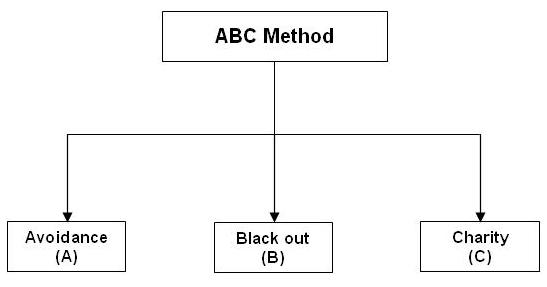How to Cope with an Allergy to a Person – Part 2

How to cope when people who upset you
Think of any interpersonal relationship, and you will find that generally people respond in the manner you stimulate them. In fact, we ourselves are the dynamic factor in any social relationship. We give directions to our relations with other people in a subtle way by our own attitude and behavior.
Unfortunately, in everyday life, some people arouse our resentment, opposition or hostility without any apparent reason. At times, they may only distract us or deflate our ego or humiliate us or embarrass us or thwart us or disappoint us or disillusion us. Sometimes, they may even threaten our security. There is a limit beyond which no one can go and still maintain one’s integrity. When this happens, we find that appeasement will not appease an aggressor. The usual techniques of how to win friends and influence people would not apply in such cases.
So, our problem is to discover what to do when other people get on our nerves through no fault of our own. What can we do when turning the other cheek wins only contempt and the temptation to hit us again with more strength? If we have to hold in our natural responses to whatever they do because of some other feeling or desire within us, we will suffer from nervousness in their presence. This is how we develop social allergy or psycho-allergy to some people in our lives.
Now the question is, what can we do about people who irritate us or make us nervous? First of all, we must have an independent adjustment to life with drive, direction and momentum. Only then can we have balance, stability and equilibrium. Therefore, I recommend Davis Harold Finks’ rules to attain an independent adjustment to life as follows:
- Learn to relax.
- Learn to play.
- Learn to work.
- Learn to think about your problems objectively and not in violent or emotional language.
- Learn to understand yourself.
- Treat yourself to a fresh start.
Learn to relax means application of deep breathing and muscle relaxation exercises or transcendental meditation or other mindfulness sensitivity training exercises to feel relaxed mentally and physically. Secondly, play is a good medicine. Music, massage, walk, swimming, games and hobbies or recreations are advisable to carry over the play spirit into everything we do. Be a cheerful giver and smile gaily as you pass it on. Do not think about your problems in violent or emotional language because words are triggers to aggressive or violent action. Just as with a surgeon’s scalpel in your inexperienced hands you may cut yourself or injure any helpless patient, so, your vocabulary may jilt yourself or others. Therefore, try to learn the What-For of language which will increase your understanding of its possibilities, its limitations and its good use for your peace of mind. Last but not the least important is that every individual should become his/her own analyst. However, mere awareness of bad habits or neurotic trends is not enough. Break the bad habits deliberately and with effort. Remember, it takes a habit – a good habit – to break a bad habit.
If you practice the above-mentioned rules in the order given, you will enjoy a kind of stability and tolerance that other people will have difficulty in upsetting. It will enable you to gain firmness and discrimination necessary for self-protection and the strength to avoid hectic rejection and harshness in your human relationship. Only after such self-mastery you will be ready to apply the ABC method of self-protection from psychosocial-allergies. The ABC method includes: Avoidance (A); Black out (B); and Charity (C); as shown below:

Read Part 1 or Continue with Part 3 of this Blog Series:
Having an Allergy to a Person – Part 1
How to Treat an Allergy to a Person – Part 3

Prof. Dr. Yasmin Nilofer Farooqi (Tamgha-i-Imtiaz) is currently working as Professor and Ex-chairperson at the Department of Applied Psychology, University of the Punjab, Lahore, Pakistan. She received her M. Sc (Gold Medal) from University of the Punjab and her M.A and Ph. D from Temple University. Dr. Farooqi gained her Doctoral Internship in Clinical Psychology from State of New Jersey and her Post-Doc from University of California, Santa Barbara. Dr. Farooqi has published more than 60 research papers in international journals and significant publications and has written chapters in national and international edited books. She has been an International Affiliate Member of APA, a member of the Consulting Editorial Board of Journal of Psychology in Africa and a Referee for APA Journals of Abnormal Psychology, Journal of Clinical & Counseling Psychology and Professional Psychology. The winner of more than 50 esteemed awards, Dr. Farooqi has promoted international understanding of Islamic perspective of mental health and psychotherapy for the welfare of Muslim clients across the globe through her publications, research work and oral presentations at international conferences.
Tags: coping skills, destructive relationship, interpersonal relationships








Where are you working now a days after retirement from. Govt job.Are you still active or resting .?